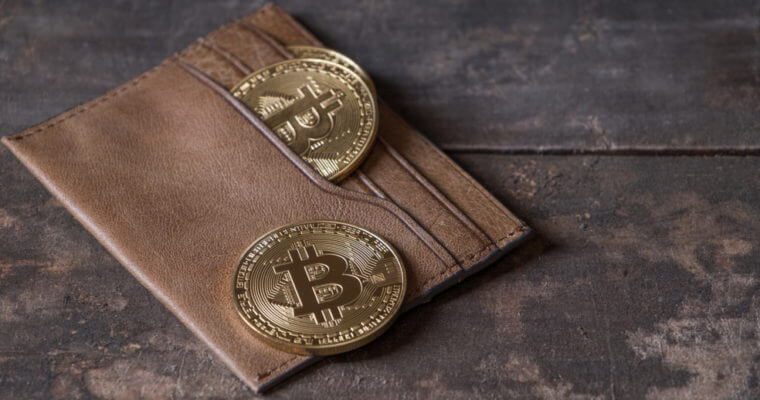Cryptocurrency wallets are software or devices that allow users to send, receive, and store cryptocurrency. Most cryptocurrencies have designed their own wallets, e.g., Bitcoin has the Bitcoin wallet, Ethereum has the Ethereum Wallet, and Litecoin has Litecoin-QT. However, there are some companies that design third-party wallets that allow you to store more than one type of cryptocurrency. If you want to interact with any cryptocurrency, i.e., sending, storing, and spending, a cryptocurrency wallet is necessary.
There are two broad categories of wallets: hot and cold wallets. In this explainer, we delve into what makes a wallet hot or cold, the pros and cons of each, and how to stay safe when handling crypto – whether you’re using a hot or cold wallet.
What Are Hot and Cold Storage Wallets?
The terms hot and cold wallets are used to describe the medium that is storing a cryptocurrency. Hot wallets are purely online-based, while cold wallets are offline-based. In other words, hot wallets are connected to the internet, while cold wallets are not.
A hot wallet is hosted online through platforms that offer these storage services. A user entrusts their public and private keys to the platform, which then secures and manages it for them. Many hot wallets are free – all you need to do is sign up and start using the service. It’s advisable not to store huge amounts of cryptocurrencies in a hot wallet – they are vulnerable to hacking. Also, you should research intensively before committing to one type of hot wallet. This is due to the following reasons:
☑️ Some hot wallet providers are not providers at all – they are scam projects looking to rip off oblivious users
☑️ Different hot wallet providers provide different user interface experience
☑️ Some hot wallets are designed to work in tandem with other apps or to support only certain cryptocurrencies
☑️ Different hot wallet providers have varying levels of expertise, commitment to safety and security, and different end goals
☑️ Some hot wallet providers are willing to continuously upgrade their model to keep up with changing hacking tricks, while others are not
Cold wallets are considered the safest crypt wallets because they are immune to cyber-attacks and other on line hazards.
Just like with hot wallets, you should consider the following factors before committing to any cold wallet:
☑️ The wallet shouldn’t be too hard to use – choose a wallet that doesn’t need a lot of practice before you can get it right
☑️ The wallet should be convenient – while all cold wallets are more suitable for long term storage and HODLing, some provide more convenience in terms of size, being discreet, etc.
Types of Hot Wallets
Hot wallets fall mainly into two categories: cloud-based wallets and multi-signature wallets. What sets these categories apart is the number of keys that control the crypto account.
Cloud wallets store cryptocurrencies using any device that has an internet connection, including a smartphone or computer.
Multi-signature wallets, also known as multi-sig wallets, are wallets that require more than one key in order for the transaction to proceed. This makes it difficult for hackers to access the information or execute a brute force attack on the wallet (which is guessing multiple private keys until you find the right one.)
A multi-sig wallet may, for example, issue three private keys: one held by the host, the other by the user, and the other one by a third trusted party.
Types of Cold Wallets
There are two types of cold wallets, and these are hardware and paper wallets.
Hardware wallets are physical devices that keep your private keys on a hardware device with the look and functionality of a USB device. Some developers provide hardware devices that are compatible with several web interfaces, but not interacting with the internet at all. In the same way, hardware devices let you conduct online transactions without having your private key interact with the internet whatsoever.
Paper wallets, on the other hand, are generated by printing out your private key and storing it offline. A software program creates them offline and is then deleted afterward to erase any trace of the key.
Cold or Hot Wallets?
New crypto users often ask themselves this question: Which is better, cold, or hot wallets? Well, that depends on your needs.
If you’re going to be interacting with your crypto often, e.g., by active trading or paying for things regularly, then it’s best to operate an easy-to-access hot wallet. However, it’s highly recommended that you don’t keep large sums of crypto in a hot wallet since if it gets hacked, you will lose all your cryptos. In other words, store small sum, for-daily-use cryptos online, and keep the rest in cold storage.
In terms of security, cold wallets win hands down. They are safe from viruses, hacking, and other types of malware. Some developers even design them in such a manner that even if you plug them in a computer that has malware, it remains unscathed. However, cold wallets are susceptible to getting lost, a fire, water, or theft. The lesson here is to keep your cold wallet in a secure, private place safe from prying eyes, fire, water, and wear and tear.
As we’ve so far mentioned in this article, hot wallets are susceptible to internet hazards like hacking, phishing, scamming, and so on. Online wallet providers may put in place the most stringent security measures, but even that has been known to fail. The most foolproof measure to secure your online-based cryptos may be insurance. Some sites like Coinbase and Binance have insured their clients’ crypto assets in case of loss or theft, which is reassuring.
Based on this information, the decision to use hot or cold storage is entirely yours. However, you should first know the advantages and disadvantages of each type of wallet before deciding upon either. Here are the perks of hot and cold wallets together with their cons.
Pros and cons of hot and cold wallets
Pros of Hot Wallets
![]() Most of them are free
Most of them are free
![]() They offer quick access to your cryptocurrency
They offer quick access to your cryptocurrency
![]() They are easy to use
They are easy to use
Cons of Hot Wallets
![]() They are susceptible to cyber fraud and cannot guarantee full safety
They are susceptible to cyber fraud and cannot guarantee full safety
![]() Your funds can be permanently lost in the hands of your wallet provider.
Your funds can be permanently lost in the hands of your wallet provider.
Pros of Cold Wallets
![]() They are secure and robust methods of storing crypto assets long-term
They are secure and robust methods of storing crypto assets long-term
![]() They are immune from cyber fraud
They are immune from cyber fraud
![]() You don’t entrust them to a third party – you are in full control of your funds
You don’t entrust them to a third party – you are in full control of your funds
Cons of Cold Wallets
![]() They can be expensive, depending on the model
They can be expensive, depending on the model
![]() They are not ideal for day-to-day use or for making micropayments
They are not ideal for day-to-day use or for making micropayments
![]() They are susceptible to loss, theft or external damage
They are susceptible to loss, theft or external damage
![]() They are not convenient for trading purposes
They are not convenient for trading purposes
Best Practices for Keeping Your Wallet Secure
Whether you settle on a hot or cold wallet, you can save yourself a lot of heartache by taking some safety precautions:
- Keep as little cryptocurrency as possible in the wallet that you use frequently
- Use applications such as Google Authenticator to enhance security for your online wallet
- Disable any automatic updates for your hot wallet
- Don’t access your hot wallet via public Wi-Fi
- Enable multiple-factor authentication for your wallet
- Backup your wallet and keep the backups in several safe locations
- Update your software regularly
Conclusion
If you’re looking to invest, trade, or make transactions using cryptocurrency, a crypto wallet is essential. A good wallet can be the difference between safely keeping your coins and losing them. The most important thing to remember is that hot or cold; your wallet’s safety largely depends on you. Also, remember to take your time and go over the available options before deciding to settle on any particular wallet.






